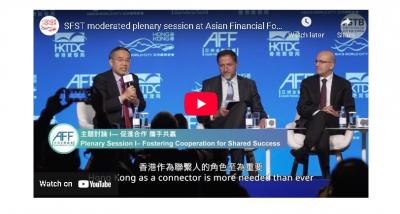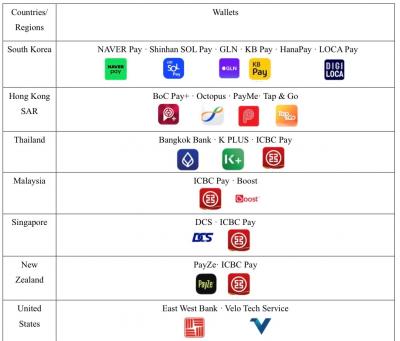CUHK Business School Research Reveals How our Perceived Future Influences our Memories of the Past
Administrator Selasa, 31 Juli 2018 09:24 WIB

HONG KONG, CHINA - Media OutReach - 31 July 2018 - Vivid memories and emotions about things affect our perceptions of when they took place, but can the chance of them happening again also influence how we regard the past?
Those of us who watched the Hollywood hit movie, La La Land, which focuses on a bitter-sweet love affair between a musician and an aspiring actress, may have been reminded of experiences we had with a former boyfriend or girlfriend.
When talking to colleagues and friends, they all agreed that their past experiences with their former partners -- whether taking a vacation in Bali, for example, or going out for dinner, having a fight, or just a conversation -- feel particularly remote now. Why is this?
Research has shown that the vividness of a past trip and the emotions associated with it can influence people's perceptions of when it took place. But can our perceived future also influence our past memories?
The findings of the published paper, "Looking Forward and Looking Back: The Likelihood of an Event's Future Reoccurrence Affects Perceptions of the Time It Occurred in the Past" by PhD Candidate Kao Si, Visiting Professor Robert S. Wyer, and Associate Professor Xianchi Dai, all from the Department of Marketing at The Chinese University of Hong Kong (CUHK) Business School, have provided some useful answers to these questions.
Looking at a Past Trip and its Possible Reoccurrence
In the research, the researchers considered another determinant -- the likelihood of the event occurring again. Specifically, they suggested that people consider past events to be more distant if the chance of their reoccurrence is low.
A past vacation in Bali, for example, seems more remote to people if they will never go there again, rather than if they are likely to return next year.
Their hypothesis is based on two assumptions: First, that people believe a future event to be more imminent if there is high -- rather than low -- likelihood of it occurring. Second, people's perceptions of when a former event will reoccur have a positive influence on their judgments about when it previously took place.
The Studies
More than 1,300 people took part in six studies. In one of the studies, the researchers asked participants to recall the most recent New Year's Eve they spent in a location other than their hometown or place of residence and write down where they went, the people they were with and what they did.
The researchers also asked the participants to rate how long ago it felt since the event occurred, using a scale from 1 (feels like yesterday/feels very close) to 9 (feels very far away/feels very distant); the likelihood of them returning there and meeting the same people, also on a scale from 1 (not at all feasible) to 9 (very feasible); and things such as how vivid and emotional their memories were.
As a result, they found evidence that participants regarded a past event that was unlikely to reoccur as being more distant.
In another study, participants were questioned about a past vacation and how distant it felt to them today; they were also asked to estimate the number of years before they would take another trip to the same place.
The result revealed that participants who were made to think that the future holiday was unlikely ended up estimating a longer period till when they would make a return trip. He also estimated the time since their past vacation to be longer when they felt it was very unlikely that the future holiday would reoccur.
In the final study, involving fixed events in the future, took place about 12 months before the 2016 Rio Olympics. The researchers manipulated participants' judgments about how long it was until the start of the next Summer Games by first focusing their attention on either a near or a distant sports event.
Half of the participants were asked to think first about the coming NBA finals -- only three weeks away at the time -- which led them to regard the approaching Olympics as relatively distant.
The other half was asked to think first about the 2018 FIFA World Cup in Russia -- then three years away -- which led them to view that the forthcoming Olympics as closer.
Participants were then asked to indicate how long it seemed since the last Olympics had taken place.
Logic might suggest that the more imminent the next Olympics are then the more time that has elapsed since the previous Games. But people's answers contradicted this: The farther away participants felt the next Olympics to be, the farther away they also felt the last Olympics to be.
So What did the Research Discover?
Research has shown that people's memories and appraisal of the past can be influenced by their current goals, motivations, and beliefs.
However, few studies have investigated whether people's perceptions of the future can affect their judgments of the time an event occurred in the past.
This research found that a past event is perceived to have occurred more recently if it is likely -- rather than unlikely -- to reoccur.
The results suggest an event's likelihood of reoccurring influences the perception of the time it will occur in future and that this perception, in turn, affects judgments about when the event took place in the past.
It should be noted their research focused almost exclusively on positive events, not things that could stir up negative feelings, such as a trip to the dentist or a car accident.
Also special or extraordinary personal events, such as a wedding, were not examined. Based on the current findings, the researchers speculate that the observed effect may be reduced, for both negative and special events, because people rarely anticipate or consider they will reoccur in the future.
Other explanations may also explain the current findings. One interesting idea is that people may want to distance themselves from a past event that was desirable, but was nevertheless unlikely to occur again, to reduce feelings of wistfulness. Such an alternative suggestion is not incompatible with the findings of this research.
Practical Implications of the Findings
The research could prove useful to marketers and retailers in future advertising campaigns because of the crucial role that memory and time perception play in shaping consumers' decisions.
One study showed that under some circumstances a person's desire to do something -- perhaps take an exotic holiday -- becomes stronger if they feel it is a long time since they last indulged.
Yet the research highlighted a previously ignored subtlety of marketing. Often great efforts have been taken to emphasise just how easy it is to do something, but the studies suggested that doing so could also backfire: when people perceive they are highly likely to indulge in something again they may feel more closely connected to these past events and are not so drawn to try them again in future.
The research also indicated that some form of vicious cycle may negatively affect the effectiveness of consumers who try to self-regulate their behavior -- specifically those who choose to set their own rules or constraints. Such consumers may want to manage their finances, for example, by limiting the frequency and amount they spend on holidays, or deliberately buy fewer cigarettes each time they run out as part of efforts to stop smoking.
Such self-imposed limits could be effective, but the research suggested that they may also backfire. As the constraints on consumers imply a reduced likelihood of the event -- such as taking holidays or smoking cigarettes -- in the future, people may feel the last time they indulged in the activity to be more distant, and therefore finding it more alluring. So the restrictions these people give themselves may actually make it easier for them to justify their indulgent behaviors -- and encourage them to do it again.
Reference:
Kao Si, Robert S. Wyer, and Xianchi Dai (2016), "Looking Forward and Looking Back: The Likelihood of an Event's Future Reoccurrence Affects Perceptions of the Time It Occurred in the Past," Personality and Social Psychology Bulletin, 42(11), 1577-1587.
This article was first published in the China Business Knowledge website by CUHK Business School: https://bit.ly/2LKwgqQ. (MOR).
Berita Terkait
Komentar
0 Komentar
Silakan Login untuk memberikan komentar.
FB Comments






